Caruana Piles on the Pressure But Fails to Break Carlsen
World title match remains tied after eighth consecutive draw.
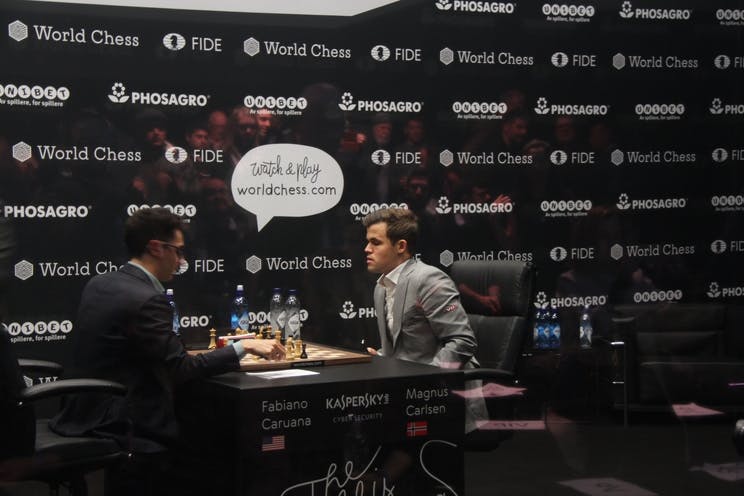
Standing on the platform at Holborn underground station in central London, a short walk from the World Championship match venue The College, two young Norwegians are in animated discussion about the game they have just seen, where challenger Fabiano Caruana - for the second time in three games - went close to knocking over World Champion Magnus Carlsen.
My translation may not be 100% accurate – I speak no Norwegian – but the conversation seemed to me to go along the following lines:
“Man, Magnus has lost his mojo.”
“No, bro, he’s just setting Caruana up for a sucker punch.”
“Are you sure, man? He looked a bit shaky today.”
“The train’s here, bro.”
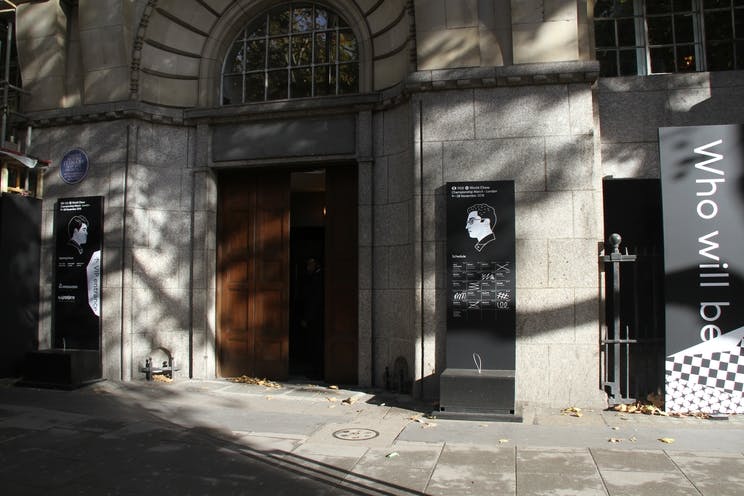
The front door to the venue. Photo: Cathy Rogers
The dozen or more Norwegian media representatives in the increasingly overcrowded press room at the College shared the young men’s ambivalence over the game 8 battle they had just seen, with the Champion escaping by the skin of his teeth. Was it a psychological boost for Carlsen – who admitted that he “was happy to have survived”? Or was it a bad sign that for the third consecutive game Carlsen’s opening preparation had seemed inadequate compared to Caruana's?
Caruana, on the other hand, took on Carlsen’s main 1. e4 defence for the match – the Pelikan Sicilian (aka the Lasker, Sveshnikov or Jamieson variation) – and forced some errors from Carlsen.
That Caruana did not score the first win of the match came down to some less-than-sensible time usage, perhaps suggesting a hint of impracticality.
On move 21, an hour ahead on the clock, Caruana spent 33 minutes calculating 21. c5!, the best move, which he played. However Caruana’s follow-up moves, played quickly, included a serious error which enabled Carlsen to hold the game.
So far, so normal. However at the post-game press conference, Caruana admitted that he had only considered one move, 21. c5, and had tried to calculate the consequences far ahead.
However a more streetwise player would have known to play 21. c5 as soon as it became clear that it was the right move, and then use the time two or three moves later to calculate the best follow-up, at a time when you have the critical position in front of you rather than only in your head.
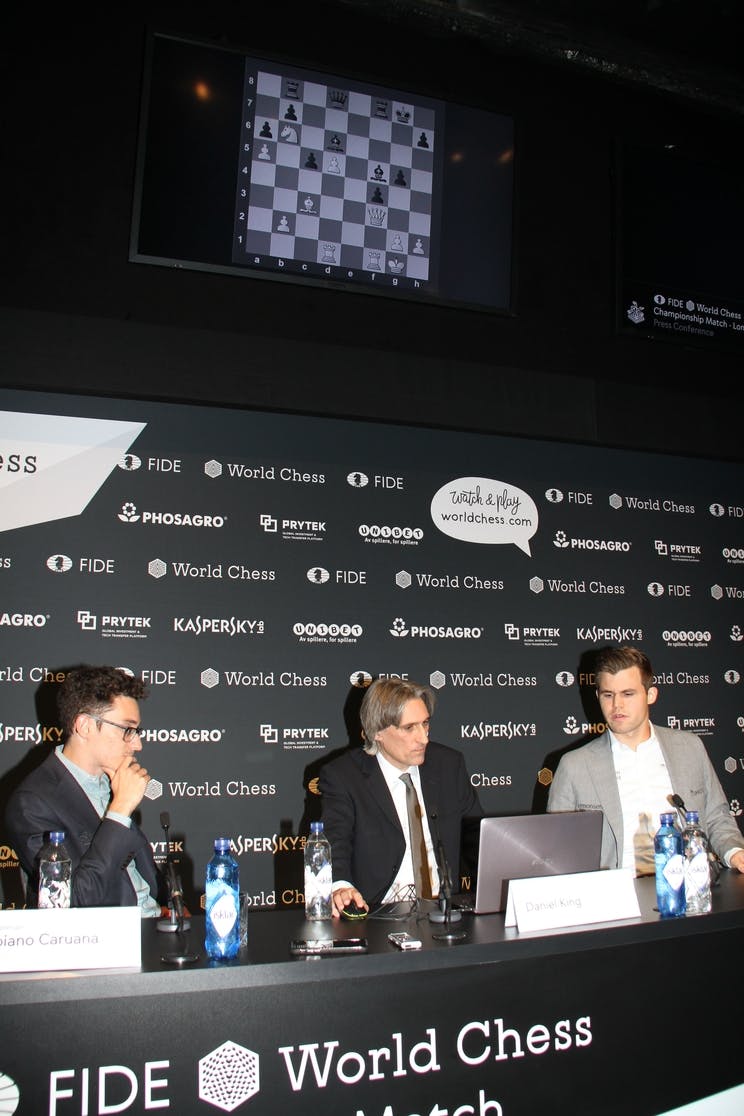
The post-match press conference. Caruana, Daniel King, and Carlsen. Photo: Cathy Rogers.
Caruana said at the press conference that the game was “a minor disappointment” but also stayed sanguine since “I had some chances [but] I don’t know how serious they were.”
The game started, once again in front of an almost all male full house, with a reminder that humans, even the two best players in the world, are only scratching at the surface of the game. Game 8 was opened by Demis Hassabis, the man behind AlphaZero – the omniscient computer which probably convinced Carlsen to declare at the opening press conference that, “I suck at chess, only a bit less than the others.”
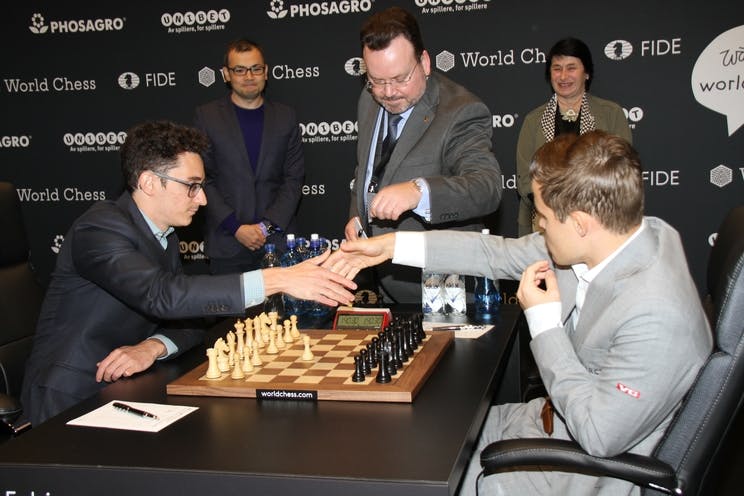
Left to Right: Caruana, Demis Hassabis, Chief Arbilter, Stefan Escafre, Deputy Arbiter, Nana Alexandria and Carlsen. Photo: Cathy Rogers
Hassabis’ Alpha Zero has inspired programmers to develop Leela Chess Zero, which is perhaps the most reliable analyst of this match, with some of its conclusions shown on Chessdom.
Meanwhile, the organisers World Chess were launching a pair of match perfumes, King’s Gambit and English Opening, presumably to be worn when meeting someone via the World Chess dating app announced shortly before the start of the match.
World Chess’ penchant for gimmicky promotions – remember the kama sutra match logo, now available on a t-shirt in the venue gift shop – may be one reason why the British media have covered this event far less than the three recent (1986, 1993 and 2000) World Championship matches in London. If an event is viewed as a medium for wacky press releases rather than a serious sporting contest, then the chances of serious media covering the progress of the contest is reduced.
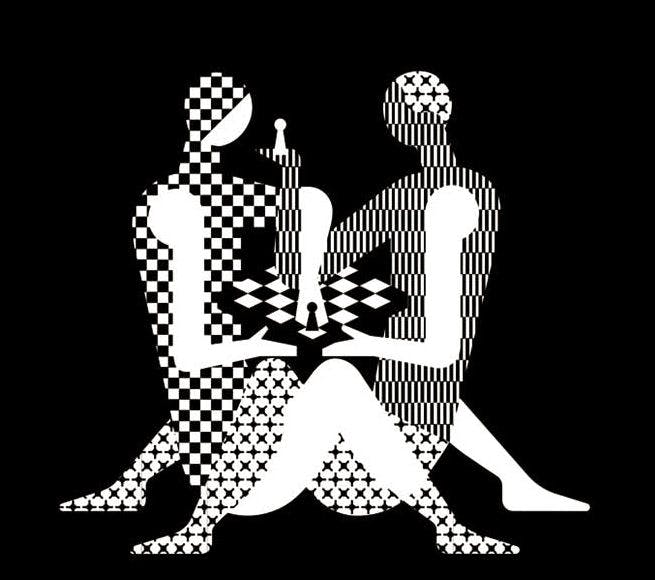
World Chess' infamous match logo
For example, half way through the match, the announcement of a promotional partnership with a security firm Pinkerton, managed to suggest that cheating needed to be dealt with and therefore that the players were suspected of something underhand. The release said that a lie-detector could be used when cheating was suspected; something which is highly unlikely to have been included in the players’ contracts.
World Chess chief Ilya Merenzon later explained that the lie detector was not to be used on the players but were at the players’ disposal in case they thought that their seconds were, for example, selling secrets to the enemy – adding the seconds to the list of people that had been insulted. (In any case, why would a player suspect his seconds of selling information to the enemy when his best friends are doing it for free?)
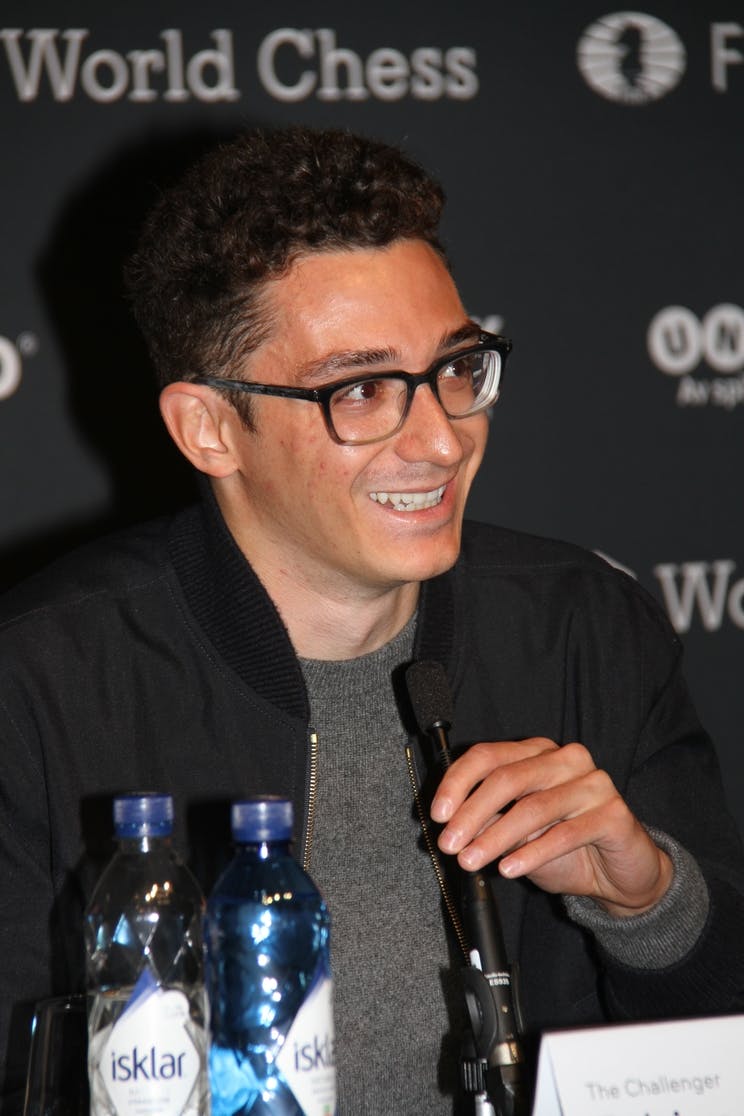
Caruana. Photo: Cathy Rogers
With four classical games to go, Caruana is undoubtedly looking the more likely to score a win, but in a situation where one mistake could lose the world title, predicting who will crack is a fraught business.
In addition, it is hard to believe that Carlsen’s seconds cannot come up with at least one promising opening idea with White - “They are working their asses off,” said Carlsen after game 8.
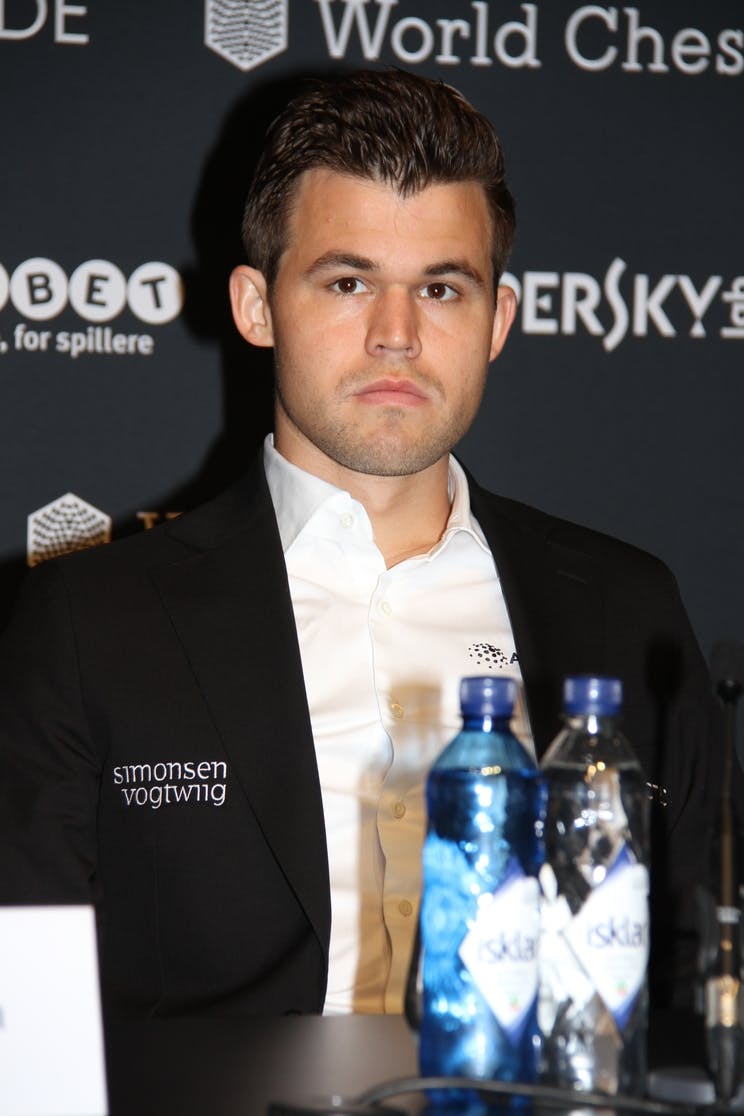
Magnus Carlsen. Photo: Cathy Rogers
Since Carlsen’s team of Nielsen, Fressinet, etc, are unlikely to sacrifice their asses for no result, expect something new and interesting from Carlsen with White when the ninth game begins on Wednesday.
https://lichess.org/study/80Xf3Bdb/eZgaquPC
Game 9 will begin at 15:00 GMT on Wednesday. You can watch the games on Lichess' live relay with all features 100% free.
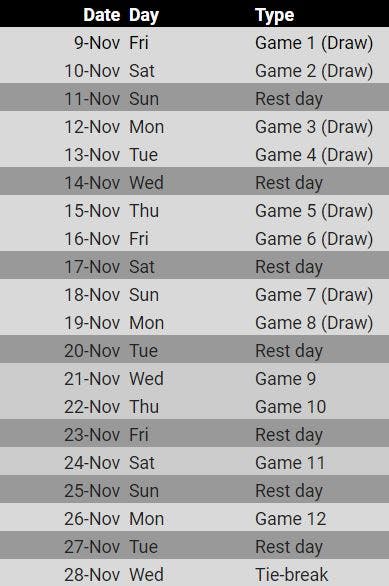
Here are links to our previous World Championship reports after game 1, 2, 3, 4, and 6.
Stay tuned to our standard communication channels for details: